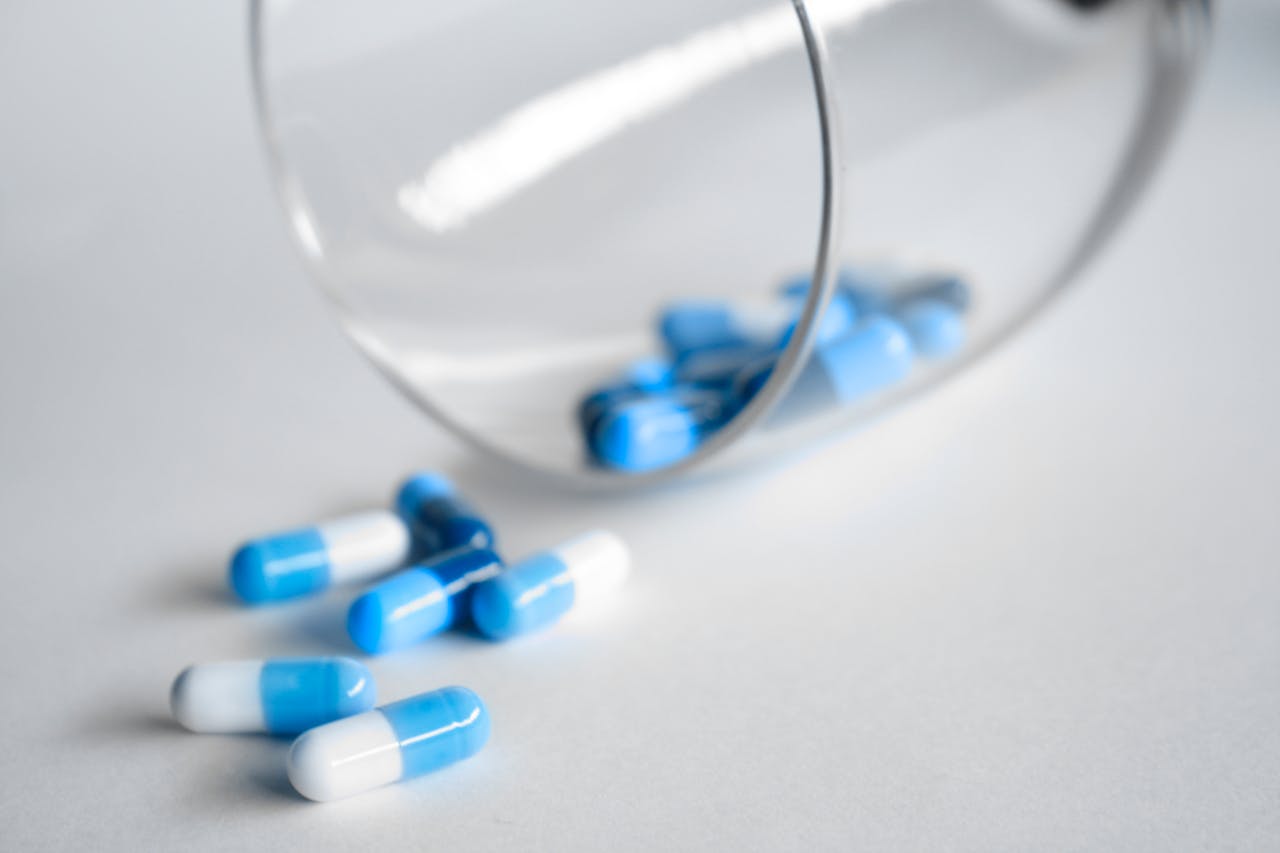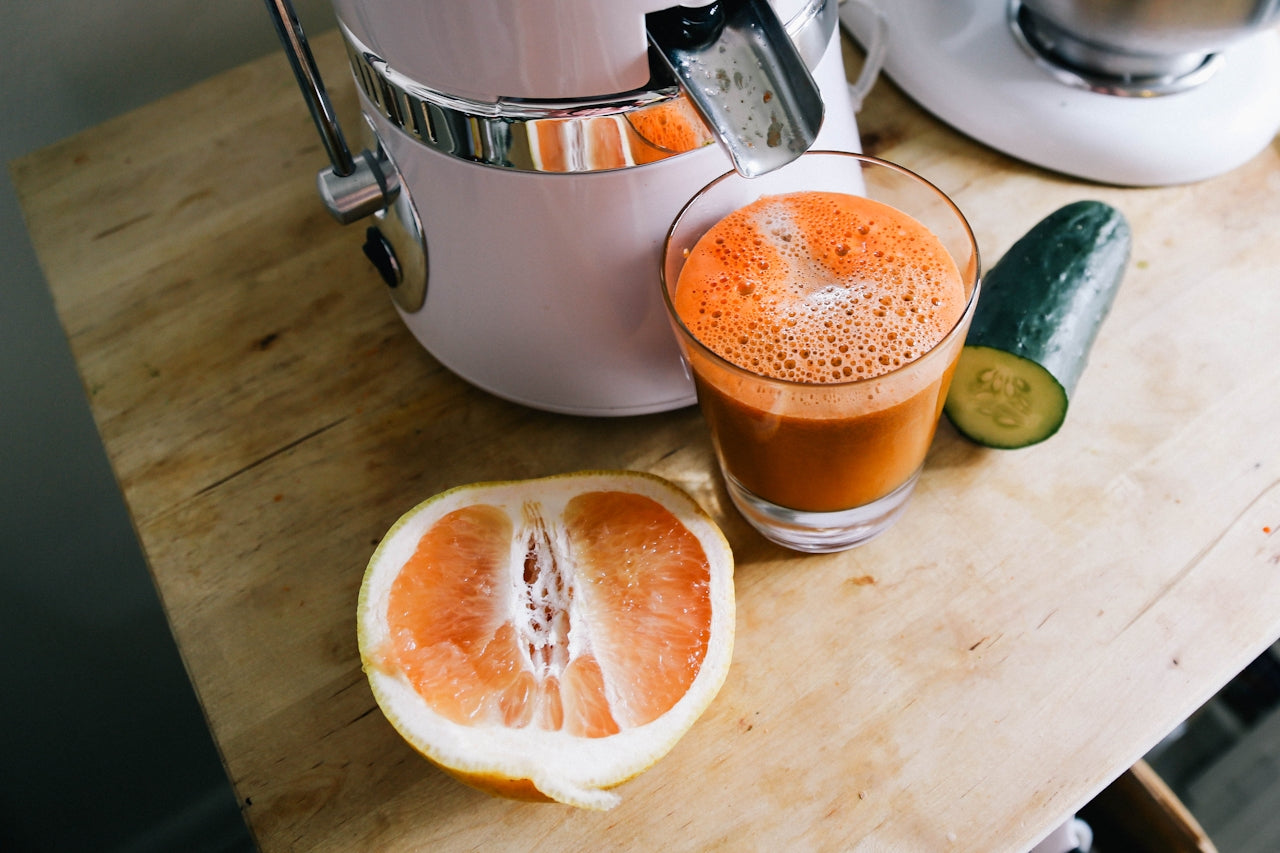Antibiotics can be life-saving — but they don’t always leave your gut in great shape. While they work hard to eliminate harmful bacteria, they can also disrupt the delicate balance of beneficial microbes that live in your digestive system.
So if you’ve recently finished a course of antibiotics, you might be wondering: how can I support my gut to recover properly? Here’s what the science says.
🦠 What Do Antibiotics do to the Gut?
Antibiotics are designed to kill or stop the growth of bacteria — but they don’t discriminate between good and bad strains. This means they can significantly reduce your gut microbiome diversity, which can lead to:
-
Bloating or digestive discomfort
-
Increased risk of infections
-
Lowered immunity
-
Mood and skin changes
A 2016 study showed that even short-term antibiotic use can disrupt gut flora for weeks or months (Palleja et al., 2018).
✅ How to Support Gut Recovery
1. Eat More Fibre
Fibre-rich foods feed your good gut bacteria and help restore diversity. Aim for a variety of fruits, vegetables, legumes, whole grains, nuts, and seeds. Prebiotic fibres (like in garlic, leeks, and bananas) are especially helpful.
2. Include Fermented Foods
Fermented foods like yoghurt, kefir, sauerkraut, kimchi, and miso contain live cultures that can naturally reintroduce beneficial bacteria to your gut.
3. Consider a Probiotic Supplement
Taking a high-quality probiotic during and after antibiotic use can help replenish your microbiome. Strains like Lactobacillus rhamnosus and Saccharomyces boulardii have been shown to reduce antibiotic-associated diarrhoea and support gut recovery (McFarland, 2010; Goldenberg et al., 2017).
4. Give It Time
Your gut microbiome is resilient. Even though antibiotics can create temporary imbalance, a diverse diet and healthy lifestyle can allow the gut to rebuild itself over time. Patience and consistency are key.
5. Reduce Inflammatory Triggers
Limit ultra-processed foods, alcohol, and excessive sugar, which can worsen inflammation and delay healing in the gut lining.
💡 Bonus Tips
-
Stay well-hydrated to support digestion and elimination.
-
Sleep and stress management also play a role in gut health — chronic stress can disrupt gut flora too.
-
Consider postbiotics (nutrients produced by healthy gut bacteria) if advised by a professional.
🧠 Final Thoughts
Healing your gut after antibiotics isn’t about taking one magic supplement — it’s about supporting your body through food, lifestyle, and time. With the right approach, your microbiome can bounce back and even become stronger than before.
If you're unsure where to start, speaking with a nutritionist can help you personalise your approach based on your diet, symptoms, and health goals.
📚 References
Goldenberg, J.Z., Lytvyn, L., Steurich, J., Parkin, P., Mahant, S. and Johnston, B.C., 2015. Probiotics for the prevention of pediatric antibiotic-associated diarrhea. Cochrane Database of Systematic Reviews, (12). https://doi.org/10.1002/14651858.CD004827.pub4
McFarland, L.V., 2010. Systematic review and meta-analysis of Saccharomyces boulardii in adult patients. World Journal of Gastroenterology, 16(18), pp.2202–2222. https://doi.org/10.3748/wjg.v16.i18.2202
Palleja, A., Mikkelsen, K.H., Forslund, S.K., Kashani, A., Allin, K.H., Nielsen, T., Hansen, T.H., Liang, S., Feng, Q., Zhang, C. and Pyl, P.T., 2018. Recovery of gut microbiota of healthy adults following antibiotic exposure. Nature Microbiology, 3(11), pp.1255–1265. https://doi.org/10.1038/s41564-018-0257-9




